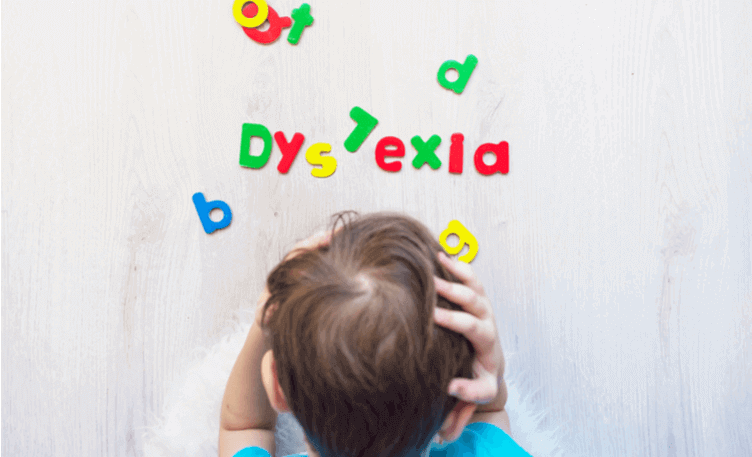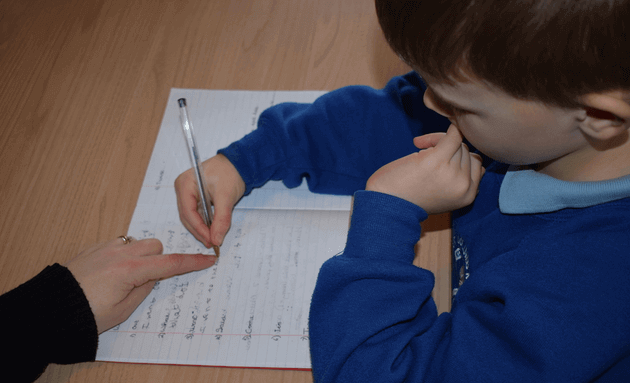Dyslexia: 5 Signs Of Child Dyslexic Every Parent Should Read

Dyslexia is a learning disability that affects a person’s oral and written language making it difficult for him or her to grasp or read words and/or numbers. This makes it especially challenging for young children trying to follow instructions within a typical academic environment at school.
It is important to remember that this condition is not an illness. It also does not impact or reflect on the dyslexic person’s intelligence or willingness to learn which may be normal, or even above average.
What is Dyslexia?

Dyslexia is a lifelong condition said to be caused by the way in which the brain processes and stores information about identifying separate speech sounds within a word, and learning how different letters represent these sounds. However, special and appropriate teaching methods and adequate emotional support can surely help a dyslexic child cope successfully through school and later as an adult. Thus, early assessment of dyslexia in a child is greatly beneficial.
The impact of dyslexia varies from one person to another and also at various stages of the individual’s life, but the symptoms can be recognised at pre-school age. If you suspect that your child seems to display learning difficulties or may be dyslexic, here are five common signs that you can look out for:
-
Late Development of Speech

A dyslexic child may begin talking later than the expected age. He or she may also find it difficult to grasp new vocabulary, recall letters of the alphabet, or simple rhymes.
-
Reading Difficulties
Children with this condition have a harder time sounding out the words and letters they see, and therefore, are slow to read and understand text than the others in their class. It is also common for them to mispronounce or mix up letters in familiar words such as, ‘and’, ‘dog’, or confuse ‘won’ with ‘now’, for example. A dyslexic child may grow to shy away from any reading at all, and avoid reading aloud in the classroom as a way to cope with the anxiety it creates for him or her. Such a child also finds it difficult to retrieve the sequence of events in a simple story or rhyme and may be unable to summarise it. He or she takes a long time to complete homework that involves reading or writing.

-
Difficulty With Numbers
As the dyslexic child enters primary school, he or she may find it very difficult to follow number sequences; arithmetic symbols of addition, subtraction, multiplication, and division may confuse such a person. Remembering the names of colours, days of the week, or months, and learning to tell the time may also prove to be a challenging task.
-
Inability to Follow Multiple Instructions
It is common among children with this condition to be aloof and withdrawn on account of their poor reading and comprehension skills at school. Additionally, a dyslexic child is unable to follow multi-step instructions, directions of ‘left’ or ‘right’, a map, familiar routines in simple homework tasks or in performing minor duties at home. He or she also finds it difficult to spell, remember facts and prefers to memorise information without really understanding any of it.

-
Illegible Writing
A child with dyslexia has trouble holding the pencil properly and struggles with remembering punctuation and grammar rules. He or she may thus have messy handwriting and take longer to complete assignments or class tests. Despite having normal or above-average intelligence, a dyslexic child may encounter difficulty in ‘finding’ the right word when talking, or in forming answers to simple questions.
It is often the pre-school teacher who may first notice reading and comprehension issues in a child with dyslexia. If your child’s behaviour at school indicates any of the above symptoms, do consult with a doctor soon who will then carry out further tests.
It is important to work closely with the school and medical experts so that your dyslexic child receives special support and training in phonetics through the stages of kindergarten and the first and second year of school. This will ensure fewer problems for your child as he or she enters primary and higher education.






